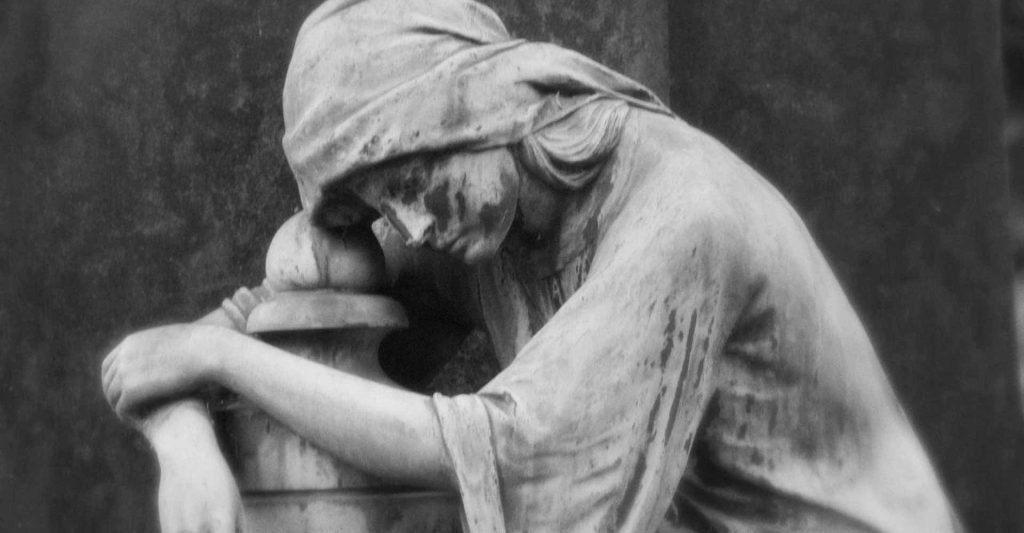
The sacrament of Confession is truly healing and restoring and beautiful. It’s not merely a gift, it’s a lifesaver for those who have fallen into mortal sin and lost sanctifying grace. How serious are you about attaining heaven? How deep is your desire to become “perfect as your heavenly Father is perfect”? How often do you turn to Christ and confess your sins in that grace-giving sacrament he himself instituted for your sake?
By Dan Dellamarine
13 August 2019
It seems to me that many people don’t truly understand how simple the Sacrament of Confession is. I mean, from a natural viewpoint. All you need are the priest, the penitent, the sins, the examination of conscience, and sorrow.
Sorrow
I don’t know about anyone else, but I haven’t cried once in the confessional. Not when I really, really started to take the Faith seriously when I was a teenager. Not when I visited a friary in New York as a college sophomore. Not this month. Never. Does this mean I was never sorry? Not necessarily.
When we make the requisite Act of Contrition right before the priest absolves us, we have to promise (in some verbal formulation or other) to never commit sin again. The words that come to my mind are, “And I firmly resolve with the help of Thy grace to do penance, to amend my life, and to sin no more.” These are the words I prepare myself with every time I’m about to go into the booth and the words I repeat even after I depart. After one too many sermons from my pastor, I’ve learned not to take these words lightly.
Will I commit these sins again? Will I let myself? How far am I willing to go to repair the damage done not just regarding my relationship with God, but in relation to the weakening of my will? If I were to find myself in the same situation, would I roll belly-up or would I fight to the death, certain to win?
Of course, most of us find ourselves a little discouraged when we make the Act of Contrition. How could we possibly “sin no more”? How could we possibly, as Our Lord says, “Be perfect as [our] Heavenly Father is perfect”? (Matt. 5:48). When I decided to start practicing my Faith more seriously at age seventeen I found the idea absolutely hilarious. How could I go from living my life as a mortally-sinning cafeteria Catholic to serving God perfectly as He deserves?
How Jesus led me from adoration to confession.
Well, if we leave the confessional with an attitude of despair, we are not truly sorry. We have to throw ourselves at God’s feet because one of the conditions of an acceptable prayer is humility. We can’t do anything without God, which means we can’t stay out of sin without His sustaining grace. When I make a statement like this, it’s easy to take it for granted. St. Pio once said, “The world would longer survive without the sun than without the Mass.” How could we imagine the effects of losing the sun, let alone losing the Mass? We can’t imagine the consequences of such losses, just as we can’t imagine the type of power God has in our spiritual battles.
A Saint’s Battle Plan
In a book called “The 12 Steps to Holiness and Salvation,” which is a compilation of various passages written by St. Alphonsus Liguori, we are told what to do when we are tempted to fall into mortal sin. The first step is to humble ourselves before God, once again. Notice how all the greatest saints were humble before anything else. The saints have called humility the queen and foundation of all virtues—with a strong foundation, all else is structurally sound.
The next step is to “have immediate recourse to God without stopping to consider the temptation.” The longer we stop to think about the temptation, the more enticing it will seem. The devil has a nasty penchant of playing with our minds, deceiving us with empty promises that we are to reject by virtue of our Baptism.
Third, we are supposed to receive the Holy Eucharist as often as possible and make adequate use of the Sacrament of Confession. We may be required to only go once a year to Confession by virtue of obedience, but by virtue of charity and devotion we should be going much more often to a confessor we know and trust. Father Chad Ripperger, a well-renowned exorcist and author, recommends that anyone taking his soul seriously should be going to Confession at least once every two weeks.
As for Holy Communion? Keep in mind it wasn’t common until the time of Pope St. Pius X for people to receive every week. People were too intimidated by the presence of God to go up and receive Him. However, St. Pius reminds us that although it is necessary to remember our unworthiness before the Creator, we must also remember Christ instituted the Most Blessed Sacrament because WE need HIM!
The final strategy St. Alphonsus gives is to foster a strong devotion to the Mother of God. One of the promises of the Holy Rosary is that no one who devoutly recites this prayer every day will be lost. St. Louis de Montfort asserted that a mortal sinner who devoutly recites the Rosary daily would either give up the Rosary or give up the sin.
Now, each of these four pieces of advice given by St. Alphonsus is applied to a certain virtue: chastity. Makes sense, doesn’t it, when you think about it? But each of these four steps can be applied to any sin one is struggling with, especially mortal sins. If we are truly going to “sin no more,” we have to be prepared to fight intelligently—and many times, that means not fighting at all. Sometimes, the best attack in the spiritual life is a quick retreat. Remember: the devil never sleeps. He never gets tired. He never gets hungry. He doesn’t stop.
But neither does God.

Dan Dellamarine is a CCD teacher for multiple grades at two parishes, and recently earned his Bachelor of Arts in Psychology from Rowan University. He serves Tridentine Rite Low Mass at his home parish, and particularly enjoys the works of Saint Alphonsus Liguori and Father Stefano M. Manelli, FI.
Leave a Reply